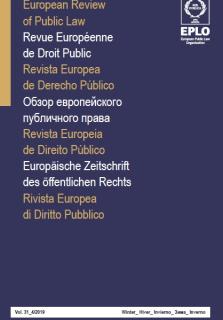
Constitutional Law / Droit constitutionnel
Greece / Grèce
DPhil, Law (Oxon), Greek Ombudsman, Deputy Director of the Academy of European Public Law
In the course of the 10-year long economic recession and the adoption of strict fiscal measures, it is estimated that a significant number of Greeks, numbering some hundreds of thousands, emigrated, mostly within Europe. This recent wave of migration presented an opportunity and a challenge to the political scene in Greece to revisit the issue of the exercise of voting rights for out-of-country citizens. Indeed, in an unprecedented consensual spirit, consecutive governments worked towards producing the - evasive for the past 45 years - legislation to regulate the exercise of the right to vote for Greeks abroad. The legislator opted for the more modest, and safest, model. Recognising the impact that the large number of diaspora could have on the overall electoral result of national elections, restrictions were placed on out-of-country citizens eligible to exercise their voting rights from the host country. Be that as it may, a constitutional provision that remained ineffective for nearly half a century, and the corresponding right of Greeks residing around the globe, found the necessary consensual ground in the highly polarized political life in the country to be implemented. The effects to the political discourse are highly anticipated.
Au cours des dix ans de récession économique et d’adoption de mesures fiscales strictes, on estime qu’un nombre important de Grecs, quelques centaines de milliers, ont émigré, principalement en Europe. Cette récente vague migratoire est apparue comme une occasion et un défi pour le monde politique grec de réexaminer la question de l’exercice du droit de vote pour les citoyens résidant à l’étranger. En effet, dans un esprit consensuel sans précédent, les gouvernements successifs ont travaillé à l’élaboration d’une législation - évasive depuis 45 ans - visant à réglementer l’exercice du droit de vote pour les Grecs de l’étranger. Le législateur a opté pour le modèle le plus modeste et le plus sûr. Reconnaissant l’impact que la nombreuse diaspora pouvait avoir sur le résultat global des élections nationales, des restrictions ont été imposées aux citoyens résidant à l’étranger pouvant exercer leur droit de vote depuis le pays d’accueil. Quoi qu’il en soit, une disposition constitutionnelle restée sans effet pendant près d’un demi-siècle et le droit correspondant des Grecs résidant ailleurs dans le monde ont trouvé le terrain consensuel nécessaire dans la vie politique très polarisée du pays pour être mis en œuvre. Les effets sur le discours politique sont très attendus.





















